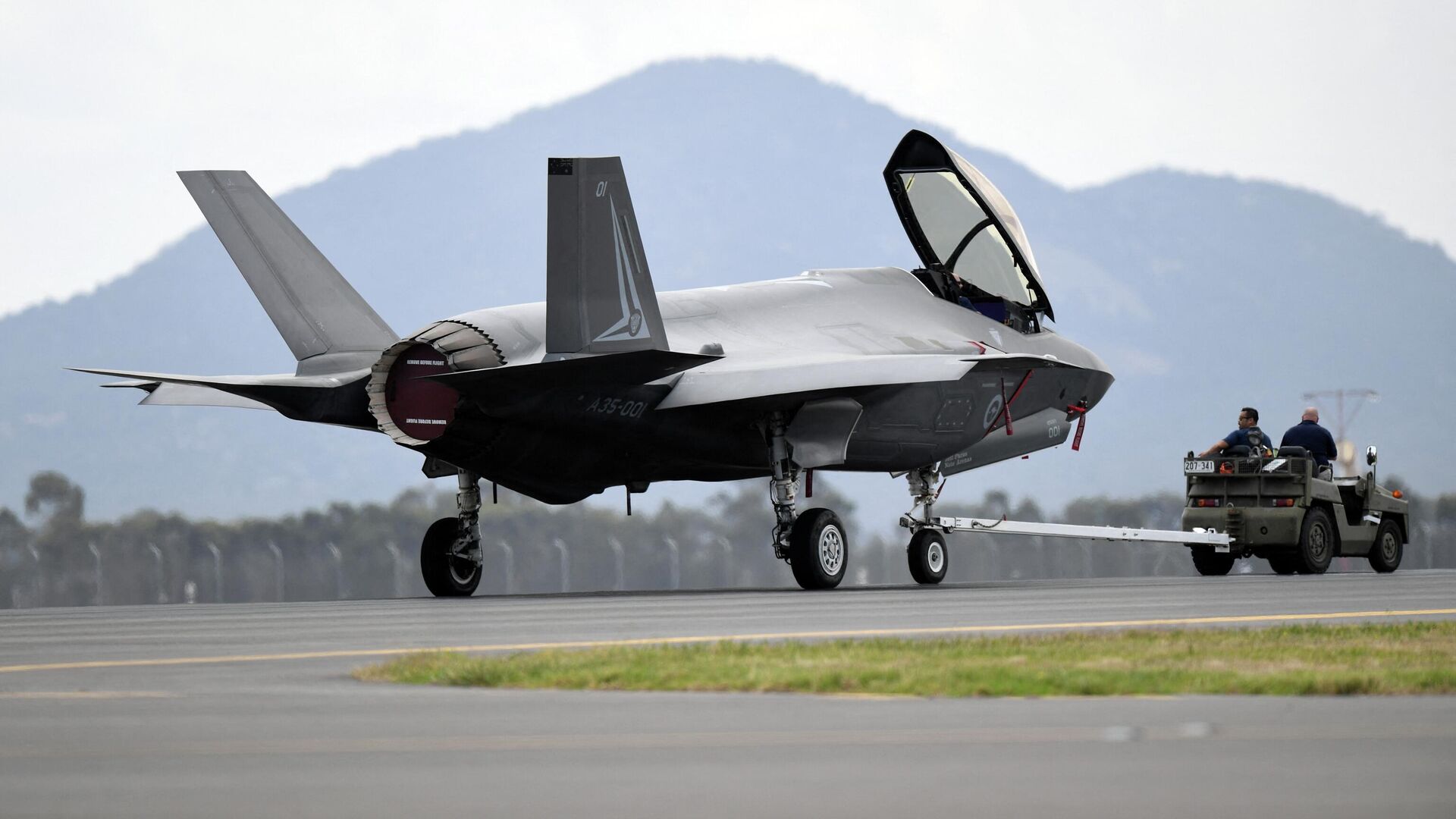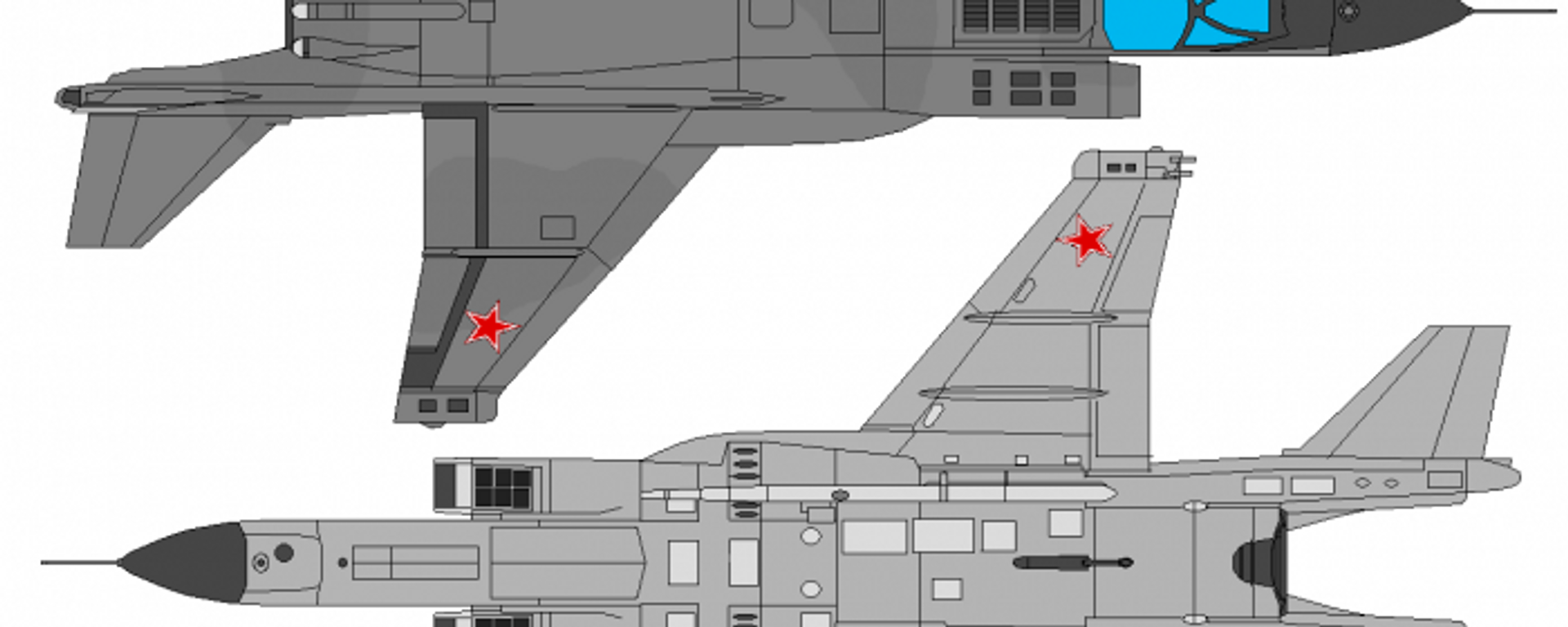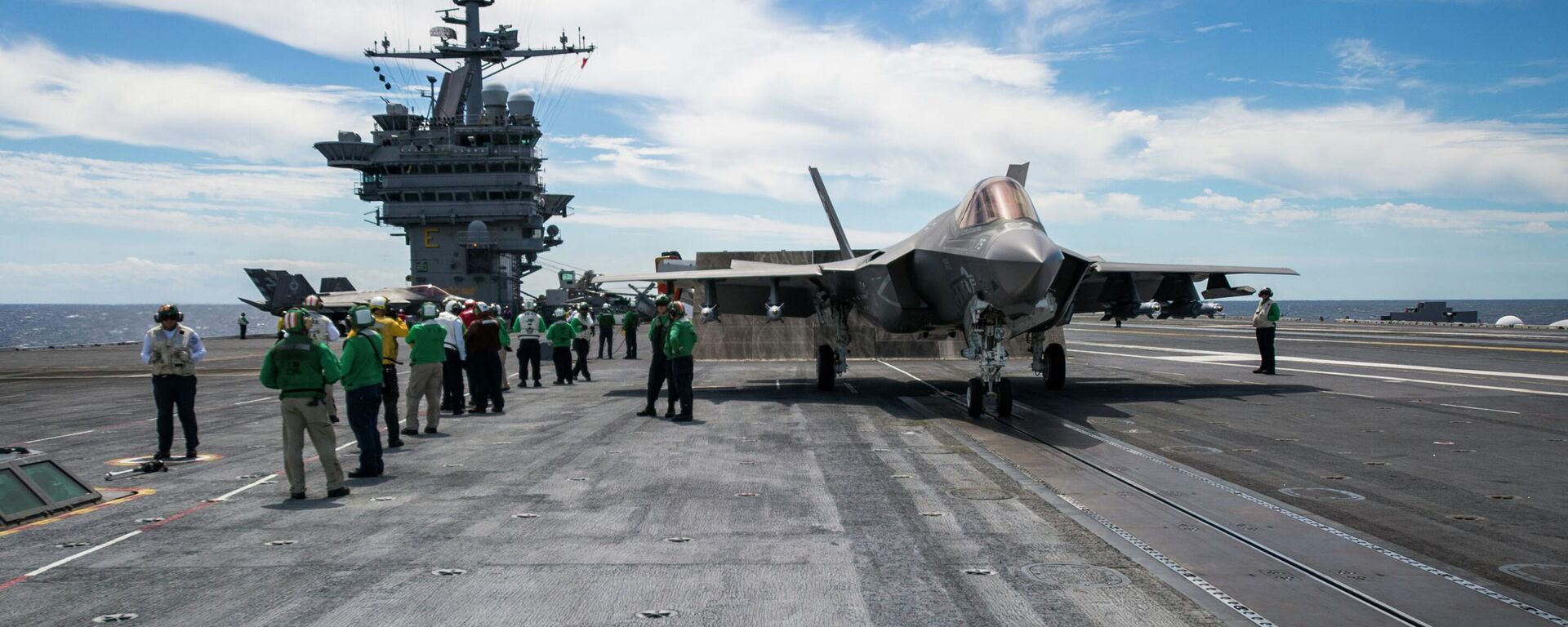F-35's Ascent and Nosedive: Costliest Weapon in History Hits Fresh Turbulence in Damning GAO Report

© MAL FAIRCLOUGH
Subscribe
Conceived as the Pentagon's next-gen do-it-all strike jet for the Air Force, Navy and Marine Corps, the F-35 has proved a budgetary nightmare, set to consume more resources than the GDP of a major G20 economy over its lifetime.
The Lockheed Martin F-35 Lightning II fifth-gen supersonic stealth strike fighter just can’t seem to catch a break, with a new report released Monday by the Government Accountability Office finding the jet woefully below mission-ready status for six straight years – i.e. every year that the Congressional watchdog has conducted its reviews.
The GAO blamed the readiness shortfall on “challenges with depot and organizational maintenance,” and over-reliance on contractors who essentially hold the Pentagon hostage with astronomical sustainment costs (which jumped from $1.1 trillion in FY2018 to $1.58 trillion in FY2023). The Navy and Air Force are set to take control of sustainment to get a grip on the situation, but not until FY2027.
The GAO estimates that only about 55% of the F-35’s three variants are mission ready at any given time, with mission readiness requiring the ability to “fly and perform at least one mission.”
With a per unit cost of nearly $100 mln and a projected lifetime cost of over $2 trln, the F-35 program is by far the most expensive military project in history.
Lockheed proceeded with the F-35’s development by taking cues from the Yak-43/141 VTOL jet – a Soviet carrier strike aircraft project scrapped in 1991. The X-35 first flew in 2000, and the F-35A in 2006.
But the F-35’s makers have proven unable to work out all the kinks in the plane, with the GAO issuing report after report citing hundreds of flaws, including mission critical defects which could injure or kill pilots, or otherwise jeopardize the aircraft’s safety.
These problems range from faulty landing gear and vibrating fuel tubes, to fragile electro-optical targeting equipment, canopy delamination issues and weather sensitivity, engine heat issues adding to wear and tear, cabin over-pressurization, night vision problems, corrosion, radar reset issues, ejection seats which can snap pilots' necks, and inability to fly in lightning.
To add insult to injury, all three of America's major potential adversaries have reportedly found the means to nullify the F-35's stealth advantage, with Russia, China and Iran announcing sophisticated radar technologies not only able to detect the F-35 at long ranges - but even identify the distinct radar signature of individual F-35 planes.



